Kazakhstan’s economy grows 4.9% in 2023, but President Tokayev says it is not enough


«Last year, our economy grew by only 3.2 percent, and in the first three months of this year - by 4.9 percent. The figures are not bad, but they do not give satisfaction and optimism. We need to look for additional sources of growth. The government should be more ambitious in terms of economic growth. This is the requirement of the times, of the current situation,» said Tokayev after hearing the reports.
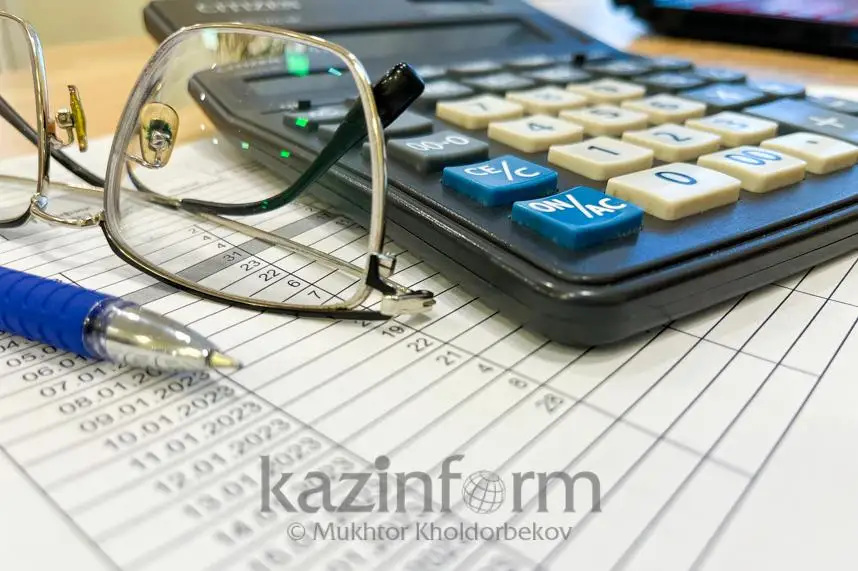
Economic growth in 2022 and plans for 2023
Smailov reported the economic growth in Kazakhstan in the first quarter of 2023 amounted to 4.9 percent. He said the national economy has adapted to unfavourable external conditions and embarked on the path of stable growth.
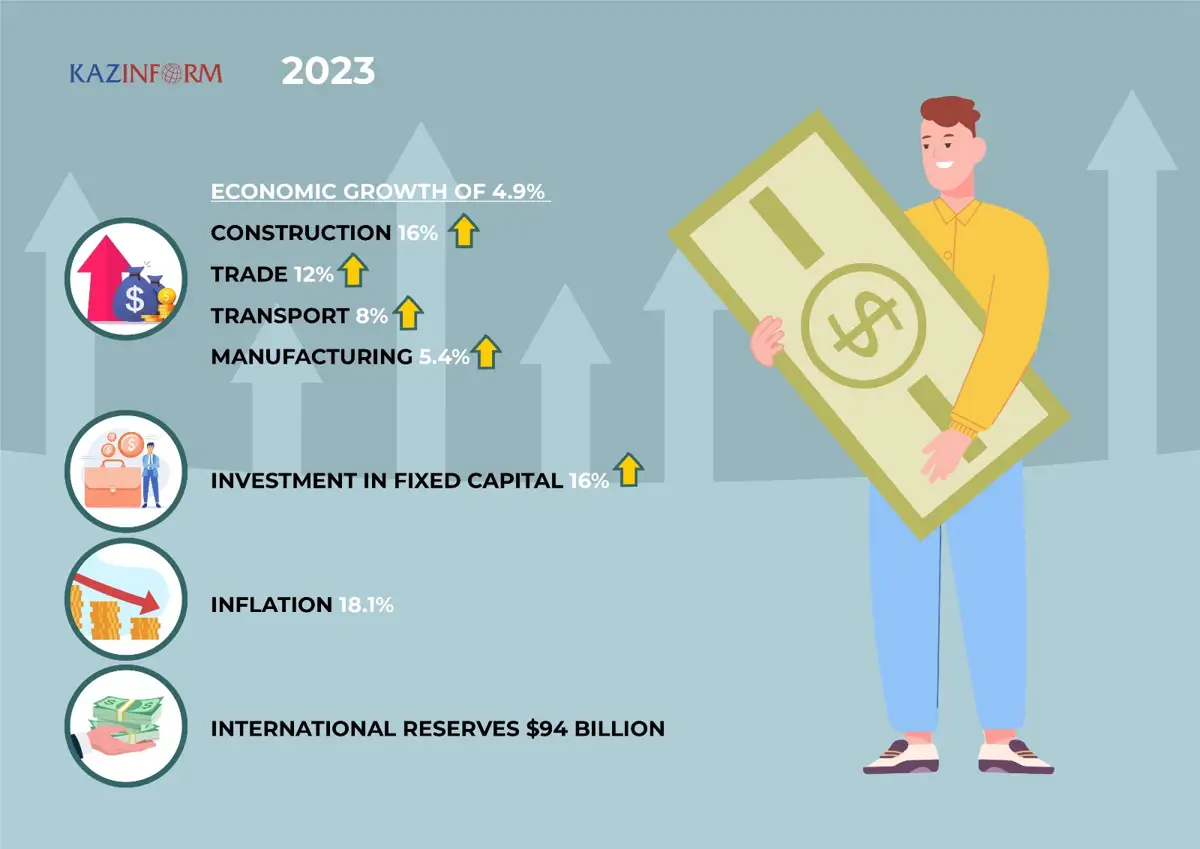
The real growth of the economy in 2022 was 3.2 percent. The country attracted $28 billion in foreign direct investment and real investment in fixed capital increased by 8 percent.
Foreign trade turnover increased by 32 percent to $134 billion.
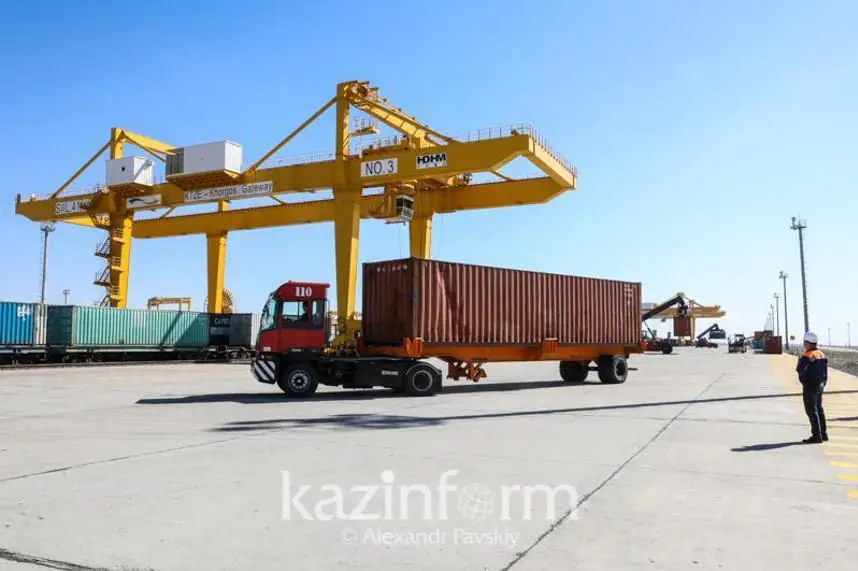
The number of active small and medium enterprises (SMEs), a priority for the country, increased by 27 percent to more than 1.8 million, employing 3.9 million people. The share of SMEs in the economy reached 36 percent.
Economic growth in the first three months of 2023 reached 4.9 percent. Smailov noted the positive dynamics in all major sectors. Construction recorded an increase of 16 percent, trade - 12 percent, transport - 8 percent, and manufacturing - 5.4 percent.
Investment in fixed capital increased by 16 percent and state budget revenues grew by 24 percent, which, according to Smailov, allowed allocating an additional 2.2 trillion tenge for social payments, development of health care, education, the real economy and infrastructure.

Smailov said price stabilization is one of the government's most important tasks. In March, the annual inflation in the country slowed down to 18.1 percent.
Last year, Tokayev criticized the government for its failure to keep the prices, and in his address to the Parliament on March 29, he tasked the government to reduce the inflation by half in 2023. Smailov assured that over the past four weeks, there was no increase in socially important food product prices.
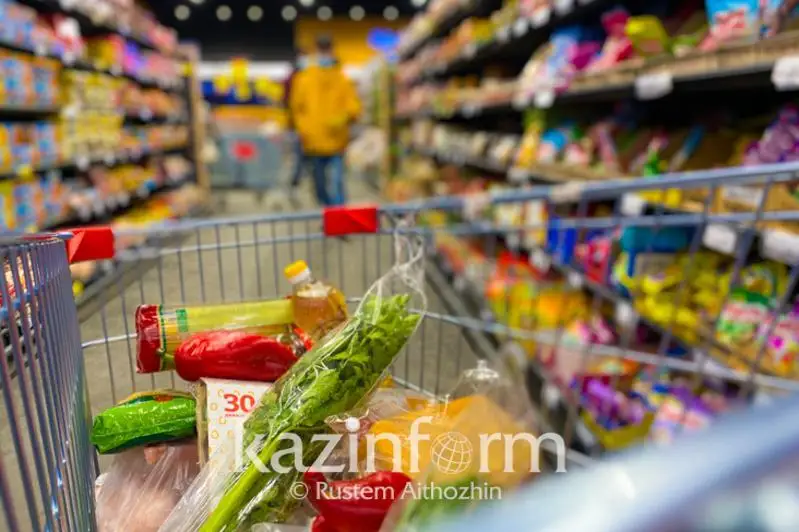
Smailov also said that the measures of systemic support for small and medium-sized businesses (SMEs) were expanded.
To develop the manufacturing industry, the government expanded the list of areas to which it provides preferential lending and financial leasing by 116 items. The term for subsidizing the interest rate was increased from 5 to 7 years for several areas.
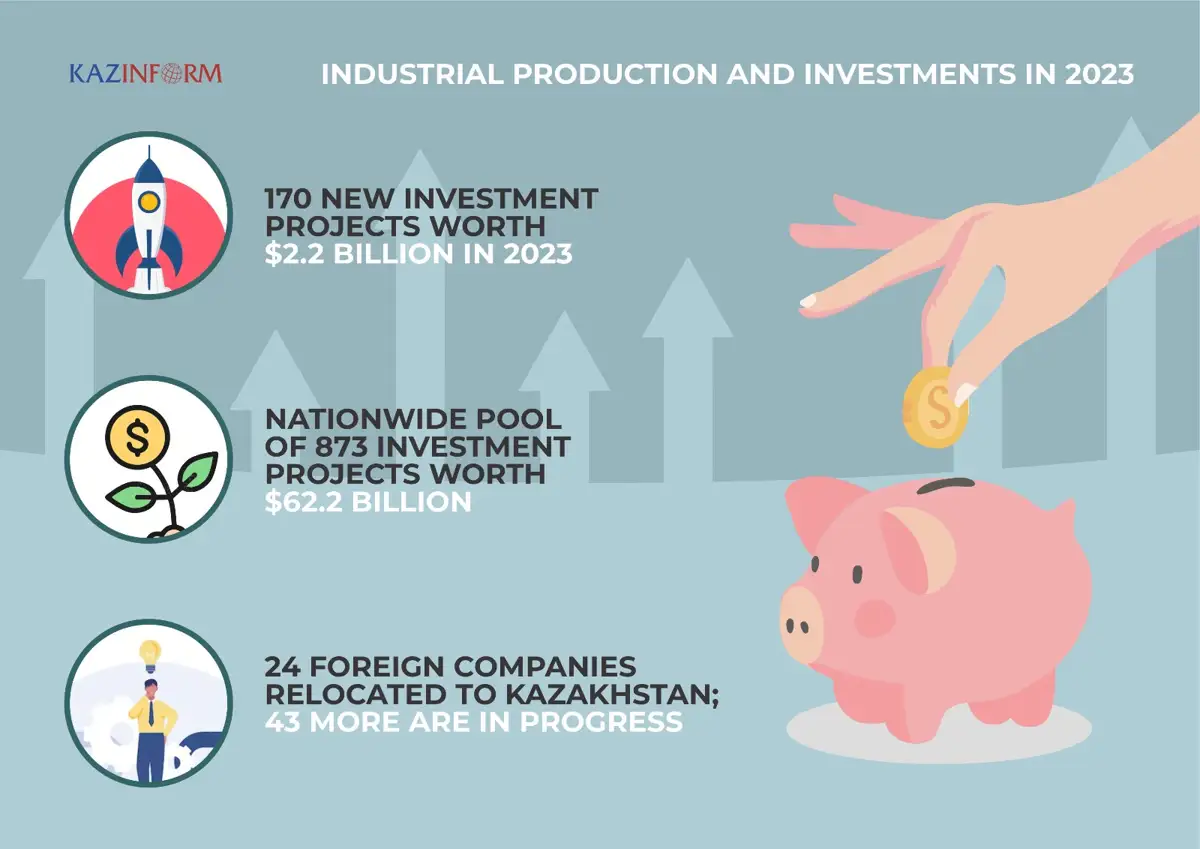
The government is expected to subsidize over 20,000 projects and provide state guarantees for more than 18,000 projects in 2023.
Overall, in 2023, 170 new industrial investment projects worth 1 trillion tenge ($2.2 billion) are planned to be launched. The government prepares a nationwide pool of 873 investment projects worth 28.1 trillion tenge ($62.2 billion). 24 foreign companies relocated to Kazakhstan, and work on 43 more continues.

President Tokayev says it is not enough
Addressing the meeting, Tokayev said Kazakhstan fell into a middle-income trap because of the «inertial pace» of economic growth over the past ten years. The middle-income trap is a term used to describe a situation where a country experiences a slowdown in economic growth and development after reaching middle-income levels.
Many countries, especially in the developing world, have experienced rapid economic growth and increased income levels in recent years but have struggled to continue to grow and develop once they reach a middle-income status. These countries often face structural challenges, including a lack of innovation and investment in human capital, weak institutions, and poor infrastructure, which can make it difficult to maintain the growth momentum.

Overcoming the middle-income trap is a significant challenge for many developing countries that seek to achieve sustained economic growth and development.
«If a solid foundation for quality economic growth is not created now, stagnation of the population's income is not far off. According to expert estimates, for Kazakhstan to move into the category of high-income countries, it is necessary to ensure annual growth of 6 percent, or one and a half times the current rate,» said Tokayev. Entrepreneurs from regions will be a driving force behind the new economic paradigm, he added.
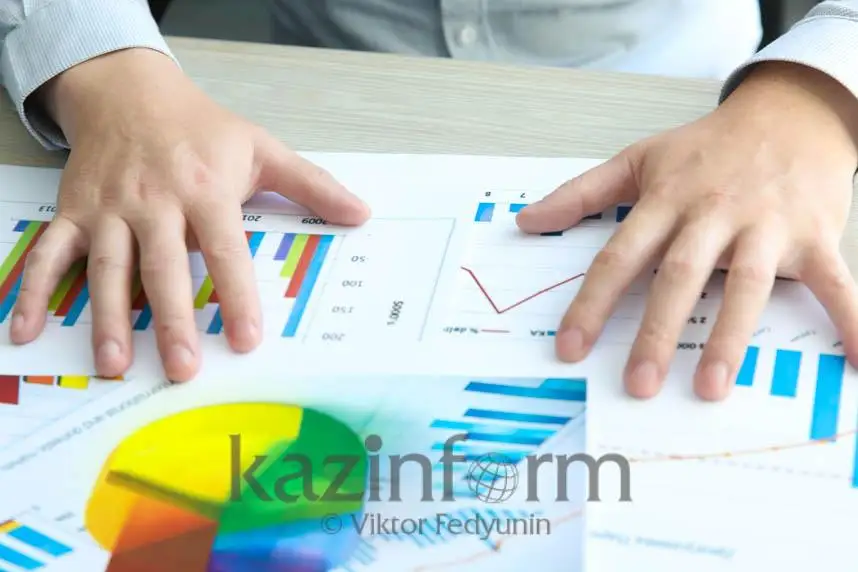
Agricultural development
Curbing inflation is just part of the enormous job that the government has to do. Tokayev also stressed the need to boost the development of agriculture and production, which has shown «no result» so far.
«This is the main reason behind food inflation. The volume of goods produced in the country is insufficient to meet the domestic demand. We depend on imports,» said Tokayev.

According to the President, the current management of the agro-industrial complex does not reveal the industry's potential.
«The government faces the task of ensuring sustainable growth of the agro-industrial complex,» he added.
Tokayev spoke about the need to ensure transparency of stabilization funds and tighten control over the agricultural subsidies.
«It is necessary to accelerate the work on the creation of modern infrastructure for the storage and sale of agricultural products. To a large extent, its absence leads to excessive intermediary structures and price markups. With an annual harvest of more than 8 million tons of vegetables and potatoes, the total capacity of vegetable storage is only 1.7 million tons. And even then, it seems to be an overestimated figure,» he said.

60 percent of the vegetable storage facilities are not equipped with cold storage facilities, and the operating life of 30 percent of the storage facilities exceeds 20 years. Storage losses reach a staggering 35-40 percent of the volume of harvested products.
According to the government data, in 2022, with the state support, 227 investment projects worth 214 billion tenge (US$473.6 million) were put into operation.
Reforms in manufacturing industry
Tokayev also underlined the importance of increasing domestic production. The law on industrial policy adopted in December 2021 created conditions for the development of the manufacturing sector. One of its key novelties was the requirement to provide domestic enterprises with affordable raw materials.
«However, most of the produced metal is still exported, which means a shortfall in value-added within the country. The government is working on additional regulatory mechanisms to be introduced in the first half of this year. The model of just exporting raw materials does not work anymore. The creation of new plants and redistribution inside the country is required,» said Tokayev.
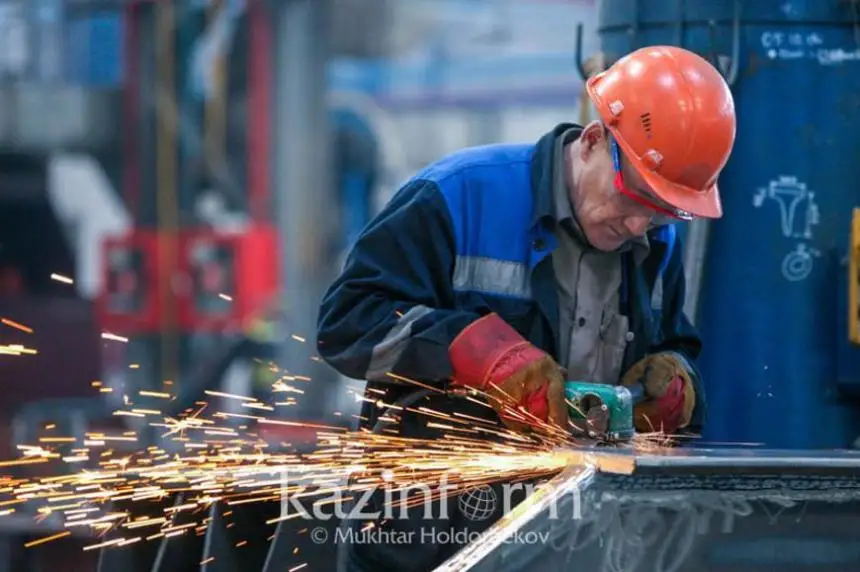
Tokayev also raised the importance of the localization of domestic enterprises. The localization of domestic enterprises in Kazakhstan has been on the agenda for several years. Localization refers to the process of promoting the development of domestic industries and businesses by increasing local production and reducing the dependence on imports.
Financing should become more accessible to both large and small enterprises equally.
»It is critically important to involve domestic banks in creating a favourable environment for business and investment. It is necessary to expand the capabilities of the banking sector in lending to major investment and infrastructure projects. (...) However, small and medium-sized businesses are still left out of the available bank lending. Yet, we know that banks have money and are willing to finance transparent entrepreneurs.»
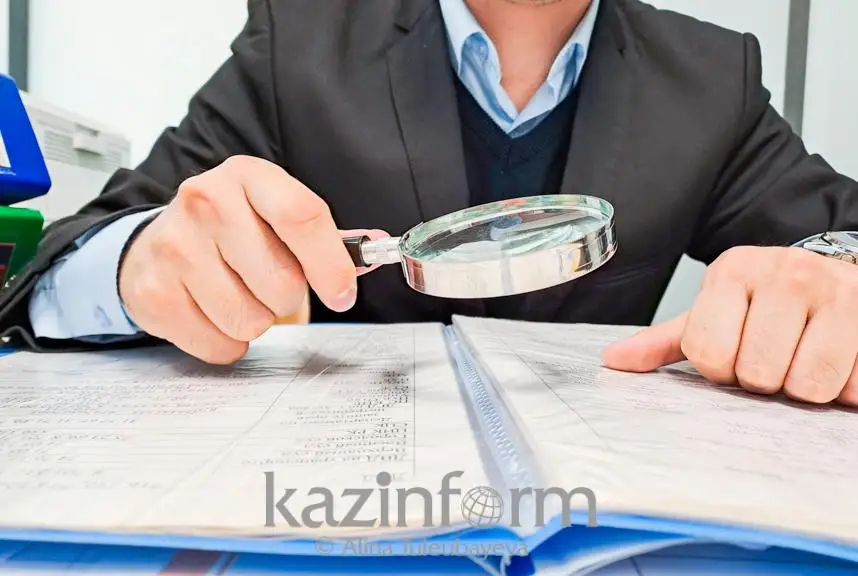
Diversification of the economy and investments
All of the measures taken in the economic field should be aimed at the diversification of the economy, something the nation has been trying to achieve in the past decade.
«I would like everyone to understand my position: the entire economic policy should be subordinated to the task of diversifying the economy, its industrialization and ultimately, attracting investment. Akims of all levels must think daily about attracting investment and creating jobs, and the government must help them in this,» he said.

Last year, Kazakhstan attracted $28 billion in foreign direct investment, a record high in the past ten years. Yet, Tokayev pointed out that more than 43 percent of them went into the mining sector, while investments in manufacturing industries accounted for only one-fifth.
«That's why we need a flexible tax policy adapted to our needs and realities, high mobility, and financial integrity of all state employees. Building an effective system of attracting and, most importantly, landing investments are necessary. Foreign investors should be offered to invest in specific projects to form ready-made package solutions. The government works productively with major foreign partners in specific industries, but we need to increase efforts. It is necessary to create an interactive investment map, to launch a digital database of investors and investment projects of each region,» said Tokayev.

Tightening protection of the rights of women and children
During the meeting, Tokayev reiterated the need to increase the protection of the rights of women and children as violence, including domestic violence, is growing.
«Unfortunately, there are facts when children are abused or killed by their own parents. Work on the prevention of domestic violence is poor and measures taken by the relevant authorities, including law enforcement, do not lead to positive results. It is necessary to revise the policy on the prevention of domestic violence,» said Tokayev.
Measures to protect the rights of women and children must be legally strengthened, he added.
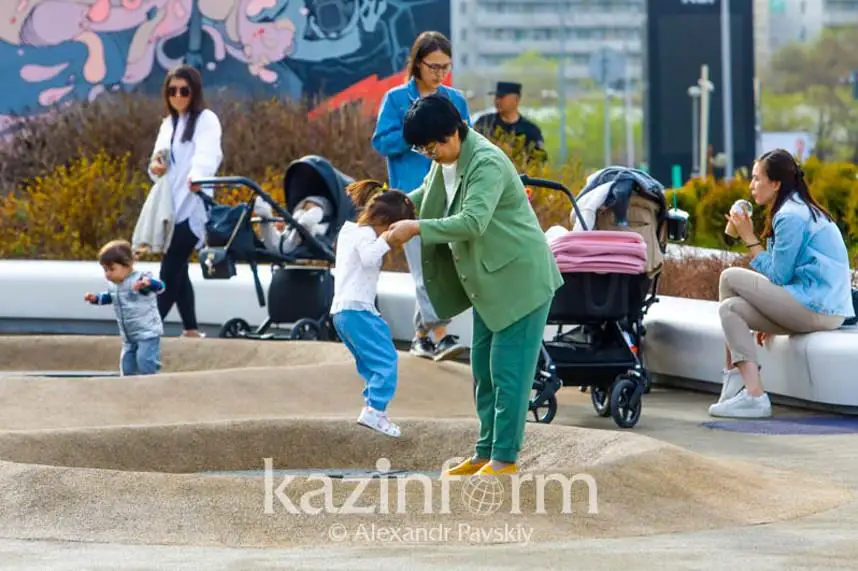
«Once again, I remind you: we need to firmly suppress all cases of violence in society and in the family. Otherwise, we will never be considered a developed country. We need to build a society where everyone feels safe,» he said.
Kazakhstan has laws and regulations in place to protect women and children from domestic violence, but in most cases, they fail to protect women and children who are victims of violence.

Reforms in public administration
Tokayev said that most of the time, implementation of reforms is hindered on the ground. Reforms in public administration are, therefore, a must.
»An effective solution to all of the above-mentioned issues is impossible without a fundamental improvement in public administration. At present, a step-by-step decentralization of the powers of state bodies has begun. About 500 functions of the government have been transferred to ministries,» he said.
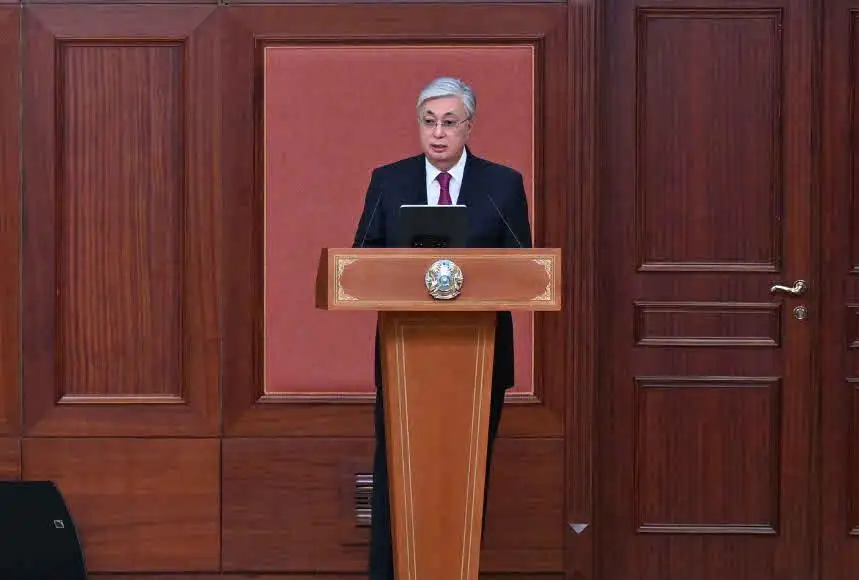
The second stage of administrative reform involves the transfer of functions from ministries to akimats. «It is necessary for decisions to be made locally, closer to the people and their needs. But decentralization should not be simply shifting responsibility to the akimats,» he added.
A good public administration is a transparent and accountable one. It should also be responsive to the needs and concerns of the public.
Tokayev said the Presidential Administration and the government are preparing to launch a single center for the reception of citizens, which will set the standard for direct communication of the first heads of the central government agencies with the citizens.